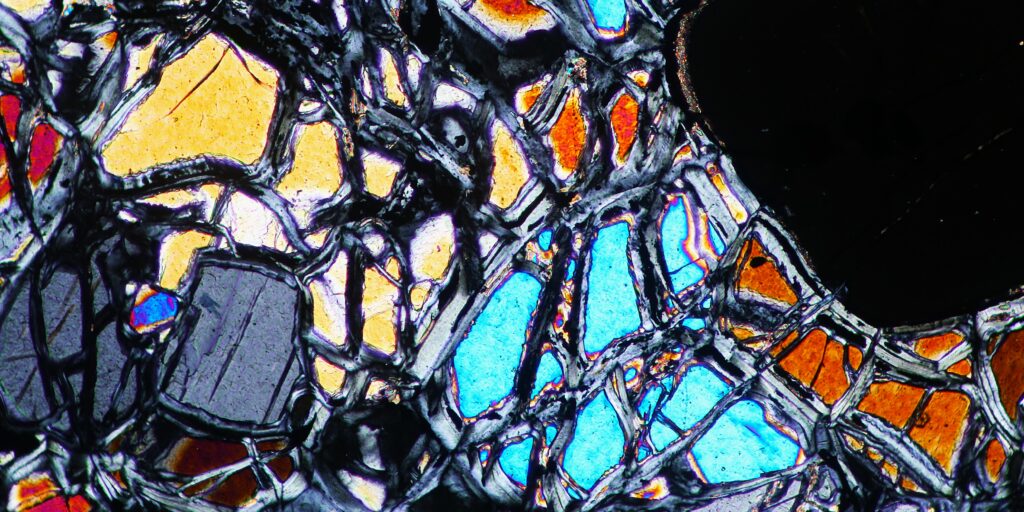Petrology
The working group Petrology investigates the mineralogical and chemical composition of rocks to understand the physical and chemical processes operating within the Earth’s interior. The focus lies on the stability and composition of mineral phases under variable pressure and temperature conditions, and their significance for the evolution of the Earth’s crust and upper mantle.
Key research topics include the role of water in nominally anhydrous mantle minerals and its distribution and transport in subduction zones, the petrology of mantle and high-pressure rocks, and the reconstruction of pressure–temperature histories of metamorphic rocks. Phase equilibrium modeling is used to calculate petrogenetic grids for mafic, ultramafic, and calcsilicate rocks, allowing quantitative constraints on the formation conditions and evolutionary histories of these rocks.
Field studies and sample investigations are conducted in the Bohemian Massif (e.g., Erzgebirge, Odenwald, Granulite Massif), the Rehoboth Terrane (Namibia), the Cyclades (Greece), the Shackleton Range (Antarctica), and along the Mid-Atlantic Ridge.

